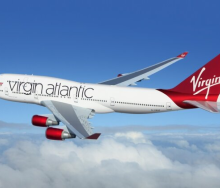Airlines are buckling under the weight of a US$35bn (R623,80bn) ticket refund bill.
“We are at present looking at an estimated US$35bn of ticket refunds. On top of unavoidable cost, ticket refunds may burn cash in the second quarter of the year for airlines,” said AlexandreDe Juniac, director general and ceo of Iata. An estimated US$10bn (R178,2bn) of this was owed in Europe.
It was cash that the industry, at present, did not have, said Iata chief economist, Brian Pearce. “Airlines may burn cash at a rate of US$61bn (R1,08trn) in the second quarter while facing a forecast nett profit loss of US$39bn (R695,47bn).”
With this in mind, Iata suggested that airlines should not give cash refunds to ticket holders, but vouchers instead.
“Airlines have to preserve cash at present or face going bankrupt,” said Alexandre. He said it was vital for airlines to maintain their cash flow if they were to weather the storm of cancellations and the reduced demand for travel. This would mean not refunding the outstanding US$35 billion, he said.
“A system of vouchers will be a far more sustainable approach for the airline industry, but we are taking into account the situation of agents around the world and therefore teams are working around the clock to analyse each and every case on its own merit.”
When asked why travel agents should make billing and settlement plan (BSP) payments when airlines were not refunding, Alexandre acknowledged the trying times companies were operating in. “However, there is no symmetry in this. Everyone in the value chain is trying to preserve cash and no one has revenue. Airlines will struggle to refund US$35bn.”
Another option was to only refund tickets after the cash crisis. This could not feasibly happen within the next six to nine months, Alexandre said. “This solution would have to be negotiated country by country and case by case.”
Brian added that the economic outlook for the airline industry was not positive, with no recovery expected until at least 2021. “In past pandemics the recovery of the travel industry was quite sharp within a few months, but this time will be different and far more difficult as we are now going to have a deep recession.”













